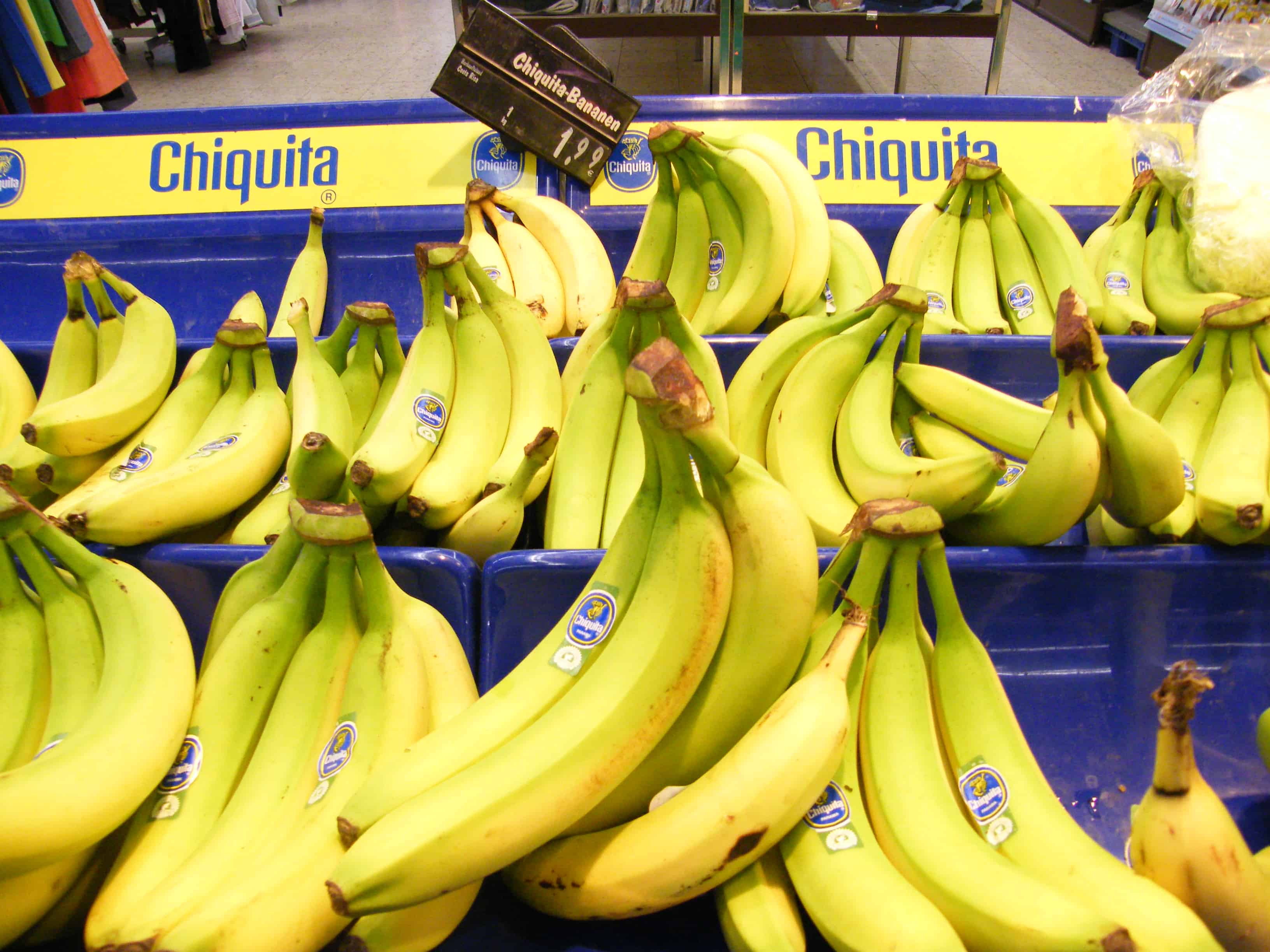NEW YORK — Chiquita Brands International, owner of the namesake banana label, received an unsolicited $611 million takeover proposal that envisages the company scrapping its pending merger with Irish competitor Fyffes.
Brazilian juice maker Cutrale Group and financial conglomerate Safra Group said Monday in a joint statement they are offering $13 a share for Charlotte, North Carolina-based Chiquita. The proposal is 29 percent more than Chiquita’s closing share price on Aug. 8. and isn’t subject to financing conditions, Cutrale and Safra said.
The proposed bid jeopardizes the Fyffes merger that would lower Chiquita’s tax bill by moving its headquarters from the U.S. to Ireland. Cutrale, a closely held company controlled by Brazil’s José Luis Cutrale, is partnering with banks controlled by Joseph Safra, Brazil’s second-richest man, to challenge the Fyffes tie-up.
“To have a new bid at such a high premium come out of left field is quite surprising,” David Holohan, an analyst at Merrion Capital in Dublin, said by phone Monday. “The market clearly is attributing value to the new bid as opposed to the old tie-up between Fyffes and Chiquita.”
Cutrale controls more than one-third of the $5 billion orange-juice market, and also has global operations in apples, peaches, lemons and soybeans, according to the statement.
“This platform offers Chiquita extensive experience in all aspects of the fruit and juice value chain,” Cutrale and Safra said in the statement.
Safra has more than $200 billion of assets under management and operates banks in North America, South America, Europe, the Middle East and Asia, according to the statement.
Joseph Safra, 75, has a net worth of $13.2 billion, according to the Bloomberg Billionaires Index. The majority of his fortune comes from his sole ownership of a banking empire whose flagship is São Paulo-based Banco Safra. Most of the rest comes from a wealth management company built around his $2.1 billion acquisition of Switzerland’s Bank Sarasin.
“If we are able to proceed on a timely basis with due diligence and discussions, we will be in a position to close the transaction before the end of the year, within the same timeframe you have indicated for the Fyffes transaction,” Cutrale and Safra said in a letter to Chiquita’s management, a copy of which was included in the statement.
Brian Bell, an external spokesman for Fyffes, declined to comment. Ed Lloyd, a Chiquita spokesman, didn’t immediately respond to a call and email seeking comment.
The Chiquita-Fyffes deal, which was announced in March, would bring together two of the world’s oldest fruit importers to create the biggest banana company, with operations spanning the Americas, Europe and Asia.
Cutrale decided to make the proposal to Chiquita after the U.S. Court of Appeals in Atlanta dismissed a human rights case against the fruit importer on July 24, said a person familiar with the matter.
Chiquita was sued by thousands of Colombians who contend Chiquita financed the United Self Defense Forces of Colombia, or AUC, a paramilitary organization accused of committing war crimes and killing thousands of Colombians during the conflict with guerrillas from the Revolutionary Armed Forces of Colombia, or FARC.
The AUC was designated a terrorist organization by the U.S. in 2001, and the company pleaded guilty in 2007 to U.S. criminal charges stemming from the payments. It paid a $25 million fine.
When the lawsuit was dismissed, Cutrale figured there was no longer a legal risk in acquiring Chiquita, said the person, who asked not to be named because the discussions are private.
Chiquita also has stabilized its financial performance, the person said. Chiquita reported an $18 million second-quarter profit, its first in four quarters. Profit in the quarter was down from $31.1 million a year earlier.
Chiquita-Fyffes plans to domicile in Ireland, even though Fyffes is the smaller of the two companies, to take advantage of a lower corporate tax rate, a practice known as inversion that has been criticized by members of the U.S. Congress and the Obama administration. A Senate bill meant to deter inversions would retroactively affect eight pending deals, including Chiquita-Fyffes.
Cutrale and Safra said their proposed acquisition of Chiquita is “without the execution risk and uncertainty inherent in” the Fyffes transaction.
Kaskey reported from Houston, Griffin from Dublin.
© 2014, Bloomberg News






